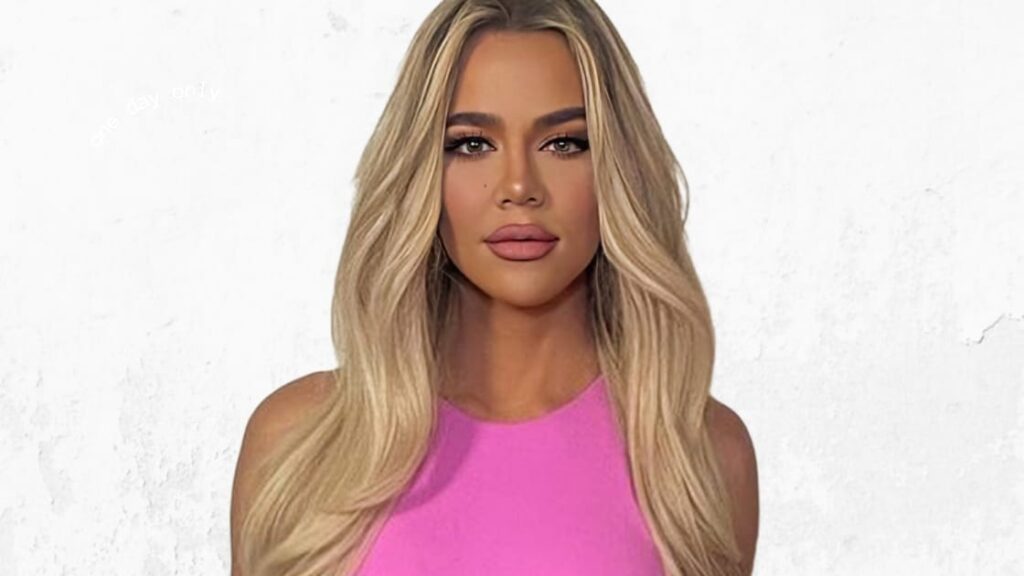
Khloe Kardashian recently offered fans a peek into her meticulously organized walk-in pantry, showcasing a mix of nutrient-rich staples and nostalgic processed snacks. Known for her transparency about health and wellness, the Keeping Up With the Kardashians star highlighted how she balances mindful eating with occasional indulgences. Her pantry, which she jokingly called “a room of its own,” reflects her philosophy that balance is key to sustainable living.
The tour began with rows of airtight containers labeled with everything from quinoa and chia seeds to organic rolled oats and almond flour. Khloe emphasized her love for nutrient-dense superfoods, explaining how they form the foundation of her meals. “I’m big on meal prepping,” she said, pointing to pre-portioned smoothie packs and homemade protein bars. These habits align with trends reported in a 2023 International Food Information Council survey, where 65% of respondents prioritized balanced diets combining health-focused and comfort foods.
But it’s not all greens and grains. Khloe laughed as she gestured toward shelves stocked with family favorites like Doritos, Cheetos, and sugary cereals. “My daughter [True] and my nieces and nephews raid this section,” she admitted. This blend of “good” and “guilty” foods, she explained, helps her avoid restrictive dieting—a practice nutritionists often warn against. Dr. Emily Roberts, a certified dietitian, notes, “Labeling foods as ‘good’ or ‘bad’ fosters guilt. A balanced pantry reduces binge-eating risks by honoring cravings in moderation.”
Organization plays a starring role in Khloe’s approach. Clear containers, labeled drawers, and designated zones for snacks, baking supplies, and supplements keep the space functional. She credited professional organizers for optimizing vertical storage, ensuring even small appliances like blenders remain accessible. “If it’s out of sight, it’s out of mind,” she said, referencing a common tip from Marie Kondo’s home management principles. Studies show organized kitchens correlate with healthier eating habits; a Journal of Environmental Psychology paper found cluttered spaces increase stress and impulsive snacking.
Khloe also highlighted her “wellness corner,” stocked with vitamins, collagen peptides, and electrolyte mixes. She mentioned partnering with nutritionists to tailor supplements to her needs—a practice growing in popularity, as 42% of U.S. adults now use dietary supplements regularly, per CDC data. However, she cautioned against trends without professional guidance: “Just because something works for me doesn’t mean it’s for everyone.”
The pantry doubles as a snack haven for her family. Khloe pointed to a drawer filled with Lunchables, fruit gummies, and Capri Suns, stressing that flexibility keeps her household happy. “I want True to enjoy childhood treats without feeling food is a reward or punishment,” she said. Pediatric nutritionist Dr. Lisa Kim supports this approach, stating, “Normalizing all foods early on helps kids develop a positive relationship with eating.”
Processed snacks, Khloe admits, aren’t just for the kids. She unabashedly loves Oreos and Takis, keeping them on higher shelves “so I have to think twice before grabbing them.” This tactic, known as “choice architecture,” is backed by behavioral science. Cornell University research found people are 23% less likely to reach for unhealthy snacks when stored in inconvenient spots.
When asked about balancing health goals with indulgence, Khloe credited her fitness routine and portion control. “I’ll have a few chips, not the whole bag,” she said. Her attitude mirrors a shift in wellness culture, where “80/20 rules” (eating nutritiously 80% of the time and indulging 20%) replace strict diets. Fitness expert Amanda Brooks notes, “Sustainable health isn’t perfection—it’s consistency and adaptability.”
Khloe’s pantry also includes “guilt-free” versions of comfort foods, like cauliflower-crust pizzas and chickpea pasta. While some critics argue processed “health foods” can be misleading, Khloe insists moderation matters most. “Read labels, but don’t stress over every ingredient,” she advised. Registered dietitian Sarah Klein echoes this, noting, “Fearmongering around additives often causes more harm than the additives themselves.”
The tour wrapped with Khloe sharing her grocery shopping strategy: a mix of online bulk orders for staples and in-store trips for fresh produce. She avoids impulse buys by sticking to a list—a method proven effective in a Journal of Marketing study, where shoppers without lists were 30% more likely to purchase unhealthy items.
While Khloe’s pantry is undeniably aspirational, she reminded viewers that everyone’s needs differ. “Your kitchen should reflect your lifestyle, not someone else’s,” she said. For busy parents, she suggested pre-cut veggies and single-serve snacks to save time. For fitness enthusiasts, she recommended protein-packed staples like Greek yogurt and nut butters.
The segment resonated with fans, amassing over 1 million likes in under an hour. Comments praised her realism, with one user writing, “Finally, a celeb who admits they eat junk sometimes!” This response underscores a growing demand for authenticity in wellness content. A 2024 Pew Research study found 72% of adults trust influencers more when they share “unfiltered” glimpses into their lives.
Khloe’s pantry reveal wasn’t just about food—it was a lesson in designing spaces that support physical and mental well-being. By blending organization with flexibility, she’s created a kitchen that fuels both her health goals and her happiness, proving balance is possible without sacrifice.
